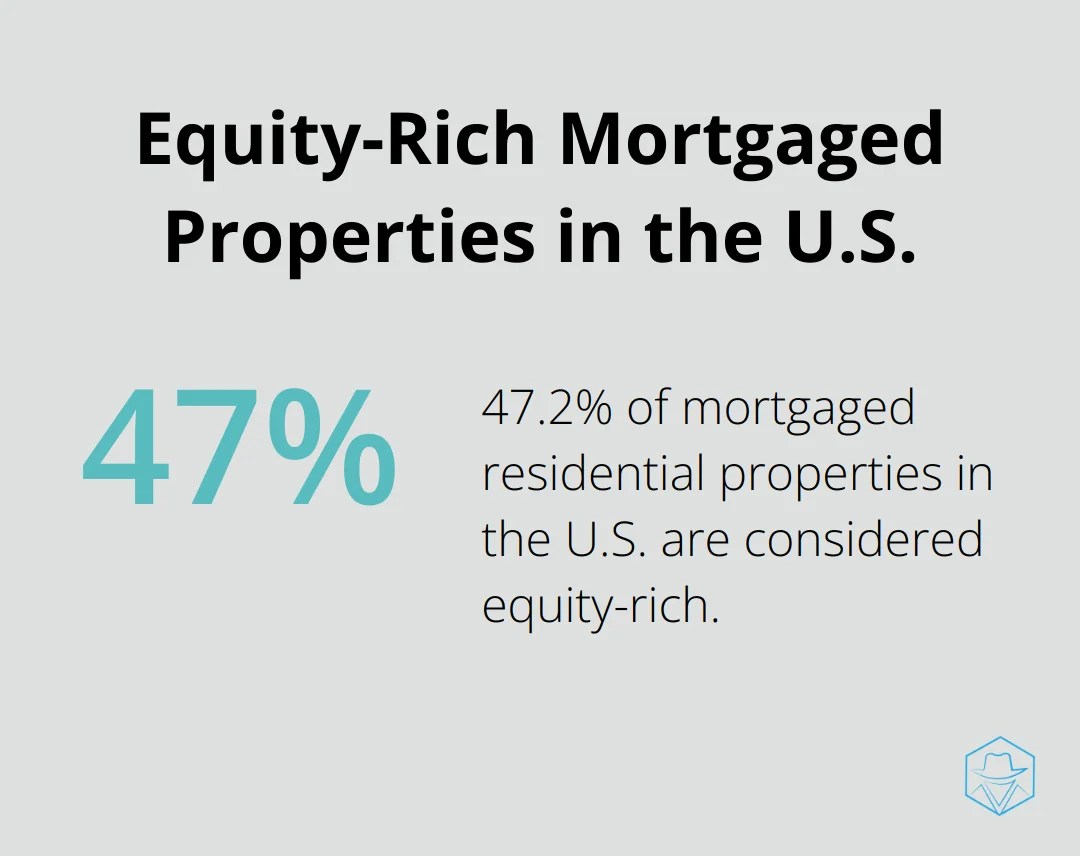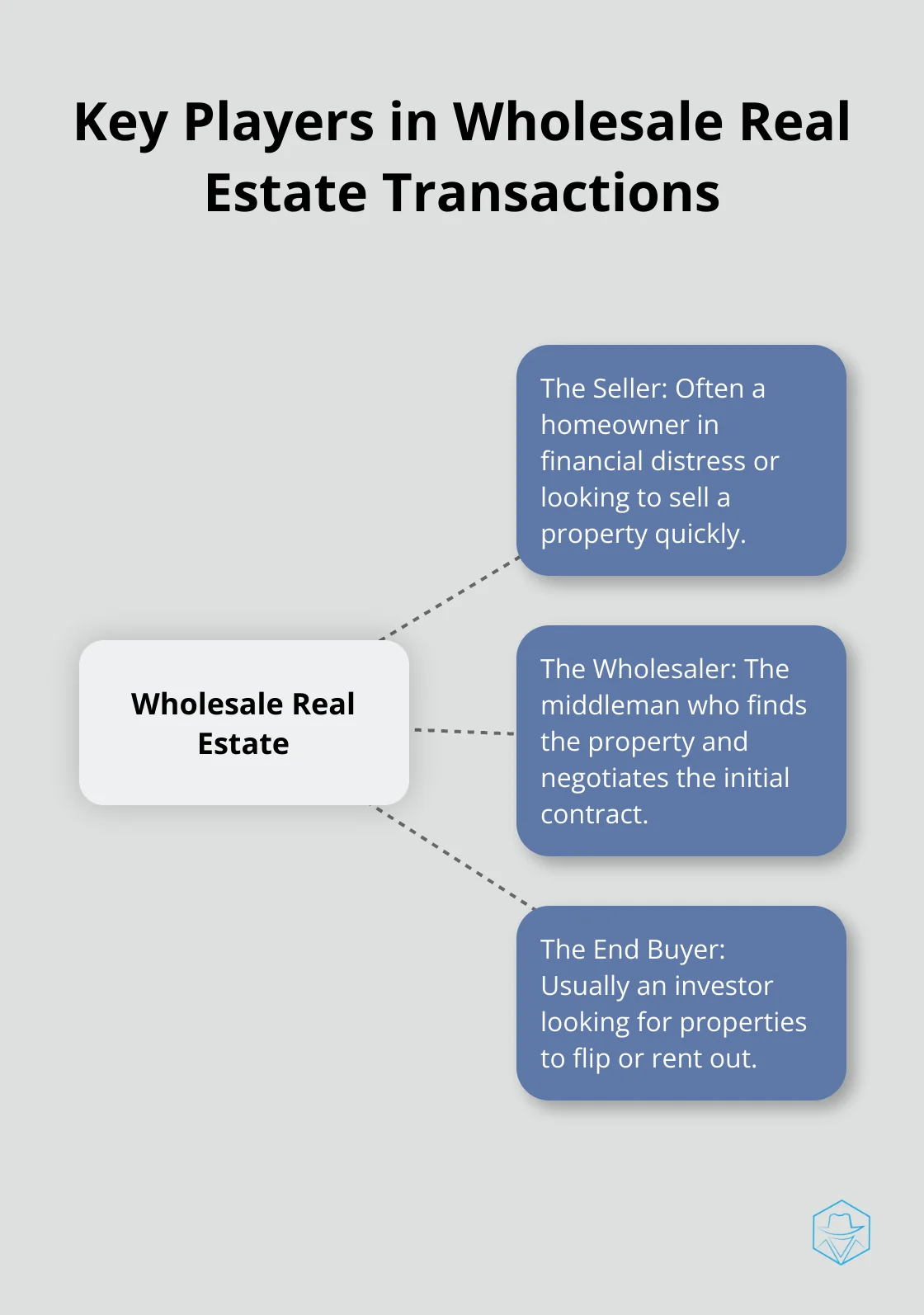Is Wholesale Real Estate Legit or a Scam?

At Drop Cowboy, we often hear the question: Is wholesale real estate legit? This controversial topic has sparked debates in the real estate industry.
We’ll explore the ins and outs of wholesale real estate, examining its legitimacy, potential risks, and ethical considerations.
By the end of this post, you’ll have a clear understanding of whether wholesale real estate is a viable investment strategy or something to avoid.
What Is Wholesale Real Estate?
Definition and Process
Wholesale real estate involves investors who find undervalued properties and sell the rights to purchase these properties to other buyers for a profit. This strategy has gained popularity among new investors who want to enter the real estate market with minimal capital.
The process starts when a wholesaler identifies a distressed property (such as a foreclosure or a property needing significant repairs). The wholesaler negotiates a purchase agreement with the property owner at a below-market price. Instead of buying the property outright, the wholesaler assigns the contract to an end buyer, often a real estate investor or flipper, for a fee. This fee, known as the assignment fee or wholesale fee, represents the wholesaler’s profit.
Key Players in Wholesale Transactions
Three main parties participate in a wholesale real estate deal:
- The Seller: Often a homeowner in financial distress or looking to sell a property quickly.
- The Wholesaler: The middleman who finds the property and negotiates the initial contract.
- The End Buyer: Usually an investor looking for properties to flip or rent out.
A report by ATTOM Data Solutions indicates that 47.2% of mortgaged residential properties in the U.S. are considered equity-rich, suggesting a potentially large market for wholesalers to explore.

Legal and Ethical Considerations
Wholesale real estate is legal in most states, but understanding local regulations is essential. Some states (like Illinois and Oklahoma) require wholesalers to have a real estate license. Consulting with a real estate attorney helps ensure compliance with local laws.
Transparency forms the foundation of ethical wholesale transactions. Ethical wholesalers disclose their role and intentions clearly to both sellers and buyers. This transparency builds trust and maintains the legitimacy of the practice.
The National Association of Realtors (NAR) offers valuable resources on real estate investing, including wholesaling. They emphasize the importance of due diligence and ethical practices in all real estate transactions.
Market Dynamics and Opportunities
The wholesale real estate market fluctuates based on various factors, including economic conditions and housing market trends. Wholesalers must stay informed about these changes to identify profitable opportunities.
In recent years, the rise of technology has transformed the wholesale real estate landscape. Online platforms and tools have made it easier for wholesalers to find deals and connect with potential buyers.
As we move forward, let’s examine the legitimacy of wholesale real estate in more detail, including its legal aspects and how it compares to traditional real estate transactions.
Is Wholesale Real Estate Legal?
State-Specific Regulations
Wholesale real estate operates in a legal gray area, with regulations that vary significantly across states. Some states require wholesalers to have a real estate license, while others allow the practice without one (but with certain restrictions).
Illinois and Oklahoma, for example, mandate that wholesalers obtain a real estate license. In contrast, Texas and Florida permit wholesaling without a license, but with specific limitations.
The Texas Real Estate Commission (TREC) allows wholesaling as long as the wholesaler doesn’t act as a broker. This means they can’t market the property to potential buyers – they can only market their interest in the contract.
Florida’s regulations mirror those of Texas. The Florida Real Estate Commission permits wholesaling, but wholesalers must avoid activities that require a license, such as marketing properties they don’t own or have under contract.

Disclosure and Transparency
Transparency forms the cornerstone of legal wholesale transactions. Wholesalers must disclose their role and intentions clearly to both sellers and buyers. This includes informing the seller of their intent to assign the contract and revealing the assignment fee to the end buyer.
The National Association of Realtors (NAR) emphasizes the importance of such disclosures in maintaining the integrity of real estate transactions. Failure to disclose can result in legal issues and damage the reputation of the wholesaling industry.
Comparison with Traditional Real Estate
Wholesale deals differ from traditional real estate transactions in that they don’t involve the transfer of property ownership to the wholesaler. Instead, the wholesaler assigns their rights in the purchase contract to an end buyer.
This distinction holds significant legal implications. Traditional real estate agents must obtain licenses in all states, while wholesalers may operate without a license in some jurisdictions.
However, the line between wholesaling and brokering can blur. If a wholesaler repeatedly engages in activities that resemble those of a broker, they may face legal consequences. Authorities consider the frequency of transactions and the nature of marketing activities when determining whether a wholesaler acts as an unlicensed broker.
Legal Consultation
To navigate the complex legal landscape of wholesale real estate, investors should consult with a real estate attorney familiar with local laws before engaging in wholesale transactions. This step can help ensure compliance and protect business interests in the long run.
As we explore the potential risks and concerns associated with wholesale real estate in the next section, it becomes clear that understanding the legal aspects forms only one part of the equation. Let’s examine the ethical considerations and common pitfalls that wholesalers and investors should be aware of.
Navigating the Pitfalls of Wholesale Real Estate
The Ethics of Wholesaling
Ethical considerations in wholesale real estate often revolve around transparency and fair dealing. Some wholesalers withhold information about their role or the true market value of a property. This lack of transparency can lead sellers to accept offers well below market value, unaware that the wholesaler plans to flip the contract for a substantial profit.
A study by the National Association of Realtors found that 47% of homeowners who sold to investors regretted their decision (often citing a lack of understanding about the true value of their property). This statistic underscores the importance of full disclosure in wholesale transactions.

Common Scams and How to Avoid Them
One prevalent scam in wholesale real estate involves wholesalers who tie up properties with contracts they have no intention of closing. These bad actors aim to extract non-refundable deposits from sellers or pressure them into price reductions. To protect yourself, always verify the wholesaler’s credentials and track record before entering into any agreement.
Another red flag is the use of overly complex contracts filled with legal jargon. Legitimate wholesalers should explain every clause in plain language. If you’re unsure, consult with a real estate attorney before signing anything.
Impact on Market Dynamics
Wholesale real estate can significantly impact local housing markets. In some areas, aggressive wholesaling has led to artificial price inflation, making it harder for genuine homebuyers to enter the market. A report from the Urban Institute found that in cities with high wholesaling activity, home prices increased 2.5% faster than in comparable markets.
For sellers, especially those in financial distress, the promise of a quick sale can be alluring. However, they may leave substantial money on the table. Buyers, on the other hand, might overpay if they don’t conduct proper due diligence on the property’s true value.
Protecting Yourself in Wholesale Transactions
To mitigate these risks, both sellers and buyers should educate themselves about local market conditions and seek advice from licensed real estate professionals. Tools like comparative market analyses can provide valuable insights into a property’s fair market value.
Sellers should be wary of unsolicited offers and always get multiple opinions on their property’s worth. Buyers should thoroughly inspect properties and research their history before committing to a purchase.
The Role of Technology in Wholesale Real Estate
Technology has transformed the wholesale real estate landscape, making it easier for wholesalers to find deals and connect with potential buyers. However, this ease of access has also increased the risk of scams and unethical practices.
Platforms like Drop Cowboy offer communication tools that can help legitimate wholesalers maintain transparency and build trust with their clients. These technologies, when used ethically, can enhance the wholesale real estate process for all parties involved.
Final Thoughts
Wholesale real estate operates in a complex landscape of legality, ethics, and market dynamics. When conducted properly, it offers a legitimate investment strategy, but requires careful navigation to avoid pitfalls and ensure compliance with local regulations. The question “Is wholesale real estate legit?” depends on how it’s practiced, with transparency and adherence to state-specific laws being key factors.
Education plays a vital role for those considering wholesale real estate. Understanding local market conditions, regulations, and best practices helps mitigate risks and ensures compliance. Sellers should exercise caution with unsolicited offers and verify their property’s true market value, while buyers must conduct thorough due diligence before committing to a purchase.
Technology has transformed modern wholesale real estate transactions. Platforms like Drop Cowboy provide communication tools that enhance transparency and efficiency in wholesale deals. When used responsibly, these technologies build trust between parties and streamline the transaction process, contributing to the legitimacy of wholesale real estate practices.
blog-dropcowboy-com
Related posts

March 9, 2025
White Label Ringless Voicemail: Is It Right for You?
Explore if white label ringless voicemail matches your business needs. Learn trends, pros, and tips in our comprehensive blog post.

May 19, 2025
Best Wholesale Real Estate Book: A Comprehensive Guide
Explore the best wholesale real estate book with tips and strategies to boost your investment success.

March 6, 2025
Text Message Marketing Statistics You Should Know
Explore text message marketing statistics to boost engagement and conversion rates effectively. Learn how SMS drives customer interaction.

August 4, 2025
How to go straight to voicemail when calling someone
Learn how to go straight to voicemail when calling someone. Discover practical tips and solutions for efficient communication without interruptions.

July 20, 2025
Gartner’s Magic Quadrant for CCaaS: What You Need to Know
Learn about Gartner CCaaS Magic Quadrant insights, top CCaaS vendors, latest trends, and how they can enhance customer engagement strategies.

April 24, 2025
Multi-Channel Marketing Automation: Best Practices
Explore best practices in multi-channel marketing automation to enhance your strategy, boost engagement, and drive conversions effectively.